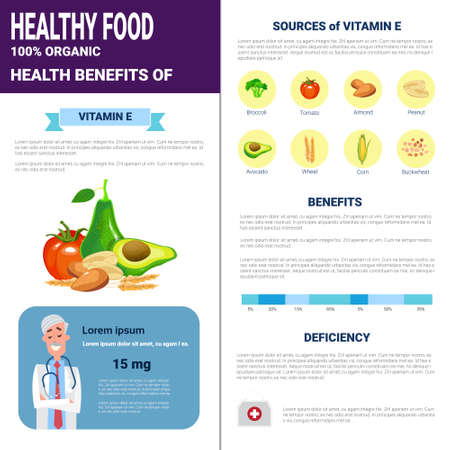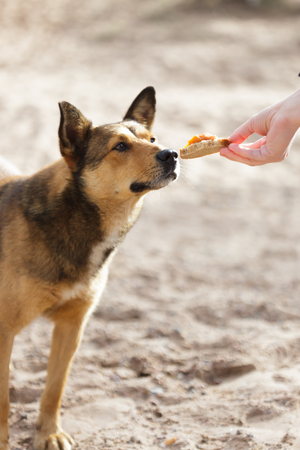Understanding the Nutritional Needs of Senior Dogs
As our beloved dogs enter their golden years, their bodies undergo a variety of changes that significantly impact their nutritional requirements. Aging affects canine metabolism, often resulting in a slower metabolic rate, which means senior dogs typically burn fewer calories than they did when they were younger. This shift can lead to weight gain if their diet isn’t properly adjusted. In addition to slowed metabolism, older dogs may experience decreased muscle mass, reduced energy levels, and a greater likelihood of developing chronic health issues such as arthritis, diabetes, or kidney disease. These age-related changes mean that senior dogs require a diet specifically tailored to support their overall health and well-being. It’s important for pet parents to recognize these evolving needs and adapt feeding routines accordingly, placing a greater emphasis on high-quality proteins, easily digestible ingredients, and nutrients that promote joint and immune health. Understanding these fundamental aspects of senior dog nutrition is the first step toward ensuring your aging canine companion enjoys a happy, healthy life.
2. Selecting the Right Senior Dog Food
When it comes to senior dog nutrition, choosing the best food for your aging canine can make a world of difference in their health and quality of life. Whether you’re considering commercial diets or homemade meals, several key factors should guide your decision.
Ingredient Quality
High-quality ingredients are essential for older dogs, whose digestive systems may not process food as efficiently as they once did. Look for foods with real meat or fish as the primary protein source, whole grains or grain-free options based on your dogs needs, and minimal artificial additives. Homemade diets allow more control over ingredients, but require careful balancing to ensure complete nutrition.
Caloric Needs
Senior dogs often have slower metabolisms and reduced activity levels, making calorie control crucial to prevent weight gain. On the other hand, some seniors may need more calories if they struggle to maintain weight due to health issues. It’s important to match your dog’s caloric intake to their current body condition and lifestyle.
| Dog Condition | Recommended Calorie Adjustment |
|---|---|
| Overweight | Reduce daily calories by 10-20% |
| Ideal Weight | Maintain current caloric intake |
| Underweight/Struggling to Maintain Weight | Increase calories by 10-20% with vet guidance |
Texture and Ease of Eating
Aging dogs may develop dental issues or weakened jaws, so the texture of their food matters. Softened kibble, canned food, or homemade diets with a moist consistency can help make eating easier and more enjoyable for seniors who struggle with crunchy textures.
Homemade vs. Commercial Diets: What to Consider
| Commercial Diets | Homemade Diets | |
|---|---|---|
| Nutritional Balance | Formulated to meet AAFCO standards for seniors | Must be carefully planned—consult your vet or pet nutritionist |
| Convenience | Widely available and easy to serve | Requires meal prep time and ingredient sourcing |
| Customization | Limited customization but some specialized formulas exist (e.g., joint support) | Easily tailored to your dog’s unique health needs and preferences |
| Ingredient Control | Less control over specific ingredients used | Total control over every ingredient in your dog’s bowl |
Consult Your Veterinarian First!
No matter which route you choose—commercial or homemade—it’s essential to consult with your veterinarian before making major dietary changes. They can help you assess your senior dog’s individual needs and ensure that their new diet supports healthy aging.

3. Essential Nutrients for Aging Canines
As your dog enters their senior years, their nutritional requirements shift to meet the demands of an aging body. Prioritizing key nutrients is crucial for maintaining their health, mobility, and overall quality of life. Here’s a breakdown of the most important nutrients you should focus on when planning your senior dog’s meals:
Protein: Maintaining Muscle Mass
Older dogs may experience muscle loss due to reduced activity and metabolic changes. High-quality protein sources, such as chicken, turkey, fish, or eggs, help preserve lean muscle mass while supporting immune function. Look for senior dog foods that list animal-based proteins as the first ingredient, and consult your veterinarian about appropriate protein levels for your pup’s specific needs.
Fiber: Supporting Digestive Health
Aging can slow down your dog’s digestive system, sometimes leading to constipation or irregularity. Increased dietary fiber—often sourced from brown rice, sweet potatoes, or pumpkin—can promote healthy digestion and regular bowel movements. Adequate fiber also helps manage weight by making your dog feel full without excessive calories.
Antioxidants: Boosting Immune Function
Senior dogs are more susceptible to illness as their immune systems weaken with age. Antioxidants like vitamin E, vitamin C, beta-carotene, and selenium fight free radicals and support cellular health. Many premium senior dog foods include antioxidant-rich fruits and vegetables such as blueberries, spinach, and carrots to help strengthen immunity and slow cognitive decline.
Joint-Supporting Additives: Enhancing Mobility
Arthritis and joint stiffness are common concerns in older dogs. Nutritional supplements like glucosamine, chondroitin sulfate, and omega-3 fatty acids (from fish oil or flaxseed) help reduce inflammation and promote joint health. Including these additives in your dog’s diet may improve comfort and mobility, allowing them to stay active longer.
Quick Tip:
Always transition your senior dog’s diet gradually and consult your veterinarian before introducing new supplements or making significant dietary changes. Every dog is unique—tailoring nutrition to their specific needs ensures they age gracefully and happily.
4. Feeding Tips and Meal Schedules
As your dog enters their senior years, their nutritional needs and eating habits can change significantly. Establishing a thoughtful feeding routine is essential for maintaining their health, weight, and overall happiness.
Practical Feeding Routines
Consistency is key when feeding older dogs. Try to feed your senior dog at the same times every day, as routine helps with digestion and makes it easier to monitor their appetite or notice changes in behavior. Most veterinarians recommend splitting the daily food allowance into two or three smaller meals rather than one large meal. This approach helps prevent digestive upset and keeps energy levels stable throughout the day.
Portion Control Guidelines
Overfeeding can lead to obesity, which puts extra strain on aging joints and organs. Underfeeding can cause muscle loss or malnutrition. The right portion size depends on your dog’s weight, activity level, and specific health needs. Consult your veterinarian for precise recommendations, but here’s a general guide:
| Weight of Dog | Daily Food Amount (Cups) | Meals per Day |
|---|---|---|
| Under 20 lbs | 0.5 – 1 cup | 2 – 3 meals |
| 20 – 50 lbs | 1 – 2 cups | 2 – 3 meals |
| 50 – 90 lbs | 2 – 3 cups | 2 – 3 meals |
| Over 90 lbs | 3 – 4 cups | 2 – 3 meals |
Adapting to Appetite Changes & Dental Issues
Seniors may experience decreased appetite or dental discomfort. If your dog seems less interested in food or struggles with chewing, try these tips:
- Warm up the food: Slightly warming wet food or adding warm water to dry kibble can enhance aroma and make it more appealing.
- Softer textures: Choose soft canned foods, soak dry kibble, or offer specially formulated senior diets designed for easy chewing.
- Smaller portions: Offer smaller amounts more frequently if your dog tires quickly during meals.
- Add toppers: Mix in low-sodium broth, pumpkin puree, or plain cooked chicken to stimulate appetite without upsetting digestion.
- Dental care: Regularly check your dogs teeth and gums; consult your vet for professional cleaning if necessary.
Sample Senior Dog Feeding Schedule
| Time of Day | Meal Type/Action |
|---|---|
| 7:00 AM | First meal (softened if needed) |
| Noon (Optional) | Light snack or second small meal for dogs needing extra calories or medication delivery |
| 6:00 PM | Main evening meal (softened if needed) |
| Bedtime (Optional) | Treats or dental chews suitable for seniors with sensitive teeth/gums |
Remember, every senior dog is unique. Monitor their body condition, energy levels, and enthusiasm for mealtime regularly, adjusting routines as needed in partnership with your veterinarian.
5. Dealing with Special Dietary Needs
As dogs grow older, they are more likely to develop chronic health conditions such as obesity, kidney disease, or arthritis. Addressing these special dietary needs is a crucial part of senior dog nutrition.
Managing Obesity in Senior Dogs
Obesity is a common issue among aging canines and can significantly impact their quality of life. To help manage your senior dogs weight, choose a diet formulated for weight control that features lower calories and fat, but maintains high-quality protein to preserve muscle mass. Portion control is vital—use measuring cups and feed at set times rather than free feeding. Regular, gentle exercise tailored to your dogs abilities can also support healthy weight management.
Nutritional Support for Kidney Disease
If your veterinarian diagnoses your dog with kidney disease, specialized diets can help slow the progression of the condition. Look for senior dog foods that are lower in phosphorus and have moderate to low protein content, which reduces the workload on the kidneys. Increased levels of omega-3 fatty acids from fish oil and added antioxidants may also be beneficial. Always consult your vet before making any dietary changes if your dog has kidney concerns.
Feeding Dogs with Arthritis
Arthritis is another common ailment in senior dogs that can be managed with proper nutrition. Diets rich in omega-3 fatty acids (such as those from fish oil) and supplemented with glucosamine and chondroitin can support joint health and reduce inflammation. Maintaining a healthy weight is especially important for dogs with arthritis, as extra pounds put additional strain on joints.
Consult Your Veterinarian
When dealing with any special dietary needs, its essential to work closely with your veterinarian or a veterinary nutritionist. They can recommend specific therapeutic diets or supplements tailored to your dogs individual health requirements and monitor their progress over time.
Key Takeaway
Managing chronic conditions through nutrition not only improves your senior dogs comfort but can also enhance their quality of life as they age. By understanding and addressing their unique dietary needs, you can help ensure your furry friend enjoys their golden years to the fullest.
6. When to Consult Your Veterinarian
As your dog enters their senior years, regular veterinary check-ups become more important than ever. Older dogs can develop unique health issues that younger pups typically don’t face, such as arthritis, dental disease, kidney problems, and changes in metabolism. These conditions can significantly impact their nutritional needs, making it essential to have a professional on your team.
Veterinarians are your best resource when it comes to understanding what’s going on inside your aging canine’s body. During routine visits, they can monitor weight changes, assess organ function through bloodwork, and detect any early warning signs of illness. This proactive approach allows you to address potential problems before they become serious and make adjustments to your dog’s diet as needed.
Working closely with your vet means you can create a diet plan tailored to your dog’s specific health requirements. For example, if your senior pup develops kidney issues, your vet may recommend a diet lower in protein and phosphorus. If arthritis is a concern, certain supplements or foods rich in omega-3 fatty acids might be suggested. Every dog is unique—what works for one may not work for another—so individualized guidance is key.
If you notice sudden changes in appetite, unexplained weight loss or gain, digestive troubles, or behavioral shifts in your senior dog, don’t hesitate to reach out to your veterinarian. Early intervention can make a big difference in quality of life and longevity.
Ultimately, your veterinarian is an essential partner in keeping your older dog healthy and happy through their golden years. Don’t skip those annual (or semi-annual) wellness exams—they’re the best way to ensure your senior dog’s nutrition stays on track and supports their overall well-being.


